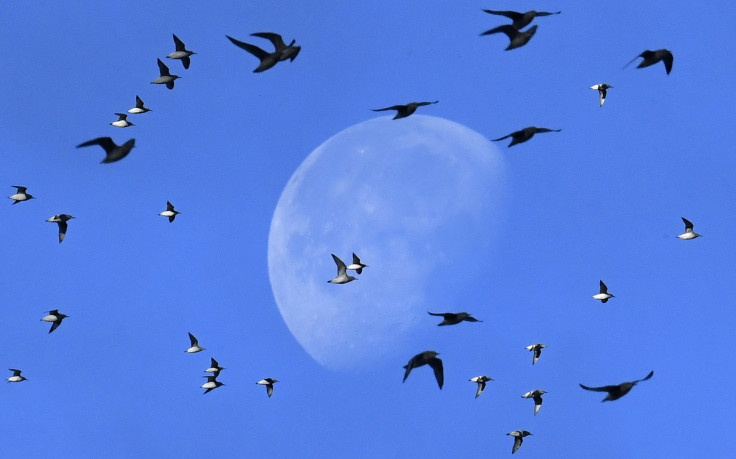End Of Times Or Science? It's Raining Dead Birds In New Jersey And It's Not The First Time

Dozens of dead birds rained down in New Jersey one November day and, well, it has people freaking out. In all, 200 red-winged blackbirds fell to the ground in a rural areal of farm fields that day. And it wasn't the first time. Dozens of dead birds had been found in the same area only three weeks before.
The 200 dead birds fell two days before Thanksgiving in the western Cumberland County agricultural community of Stow Creek Township. It was sunny outside, but cold.
"They just fell from the sky," said Larry Hajna, a spokesman for the New Jersey Department of Environmental Protection. Officials removed the best and sent them to a state lab for necropsy, toxicology, and histopathology tests.
But, weeks later, the mystery remains, according to media reports Tuesday.
"We did ascertain that the birds suffered trauma and internal bleeding from hitting the ground," Hajna said. "But what made them fall from the sky in the first place . . . we can't say for certain."
Local farm seeds were tested for chemical compounds by the University of Pennsylvania. No harmful substances were found.
"We have determined that the deaths were not caused by pesticides commonly known to be toxic to wildlife and not likely caused by compounds reported in wheat seed planted in an agricultural field," Hanja said.
Turns out, animals falling dead from the sky is perfectly normal. In 1998, about 10,000 birds, dropped on fields in Minnesota and Iowa after a snowstorm. A similar die-off involving 300 birds happened in Millville, New Jersey in 2012, after a farmer legally used a chemical to keep blackbirds from his crop.
But despite the previous instances of bird die-offs, people generally, as might be expected, find it weird when a field of dead birds show up.
"Out in the country like this, you find dead stuff lying around all the time . . . but this was kind of weird," resident Debbie Hitchner, 32, who found a half-dozen of the dead blackbirds in her backyard after the incident, told local reporters. "My dog just kept finding them, one after the other."
The World Wildlife Fund estimates that 50 million birds die from "colliding with buildings, pesticides, and predator cats" in the United States each year. LeAnn White, a wildlife pathologist with the U.S. Geographical Survey, told PBS in 2011 that there had been "at least 16 cases [of mass blackbird deaths] in the last 20 years."
© Copyright IBTimes 2024. All rights reserved.





















